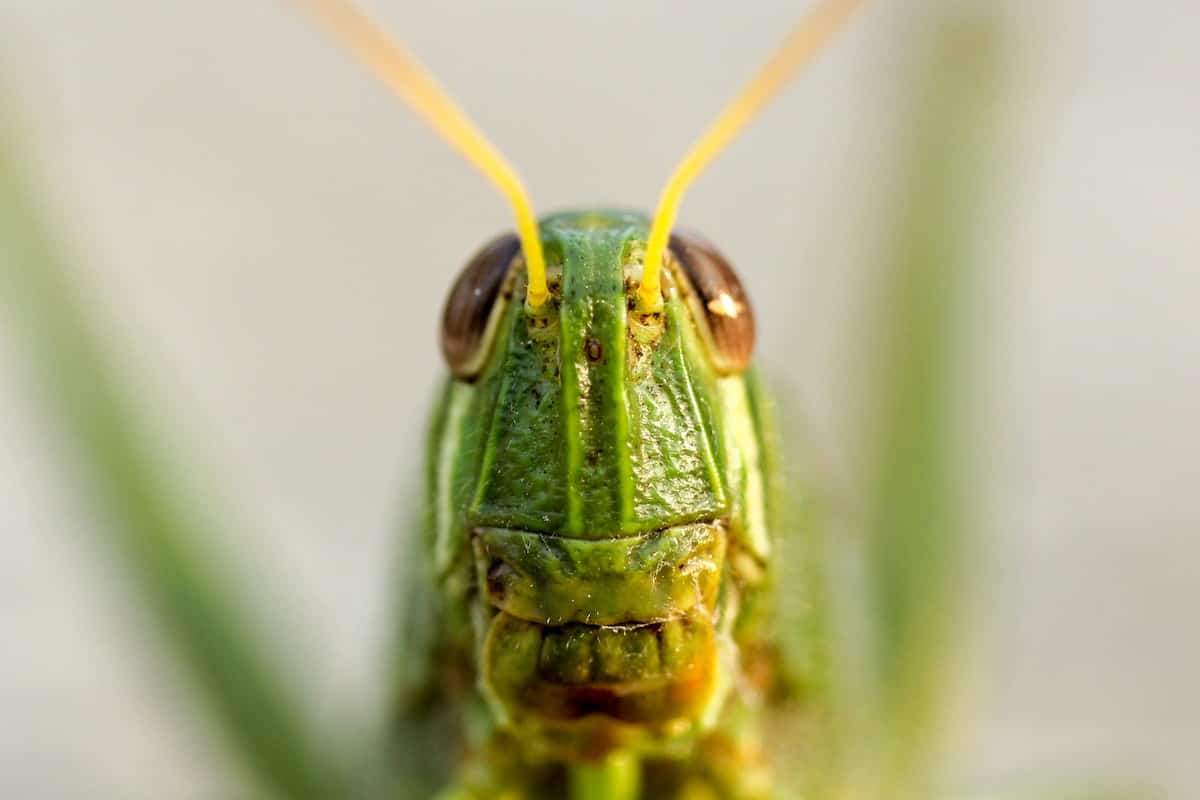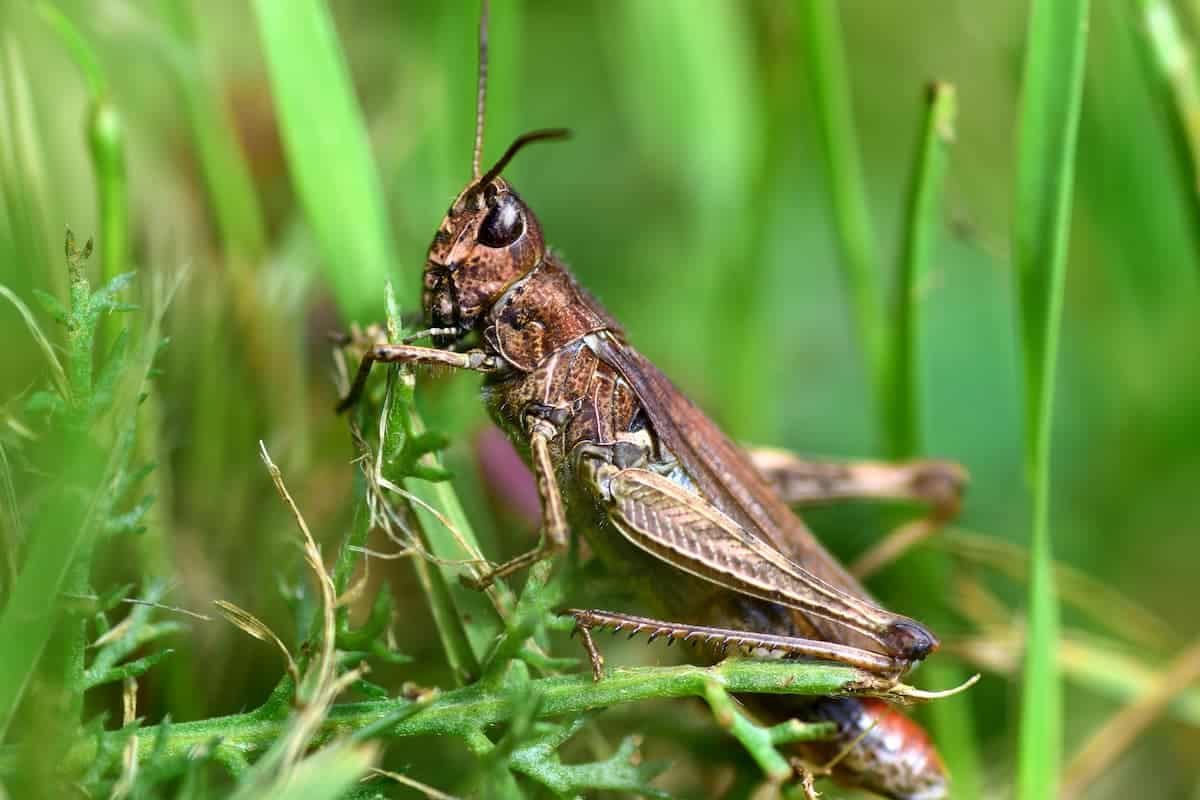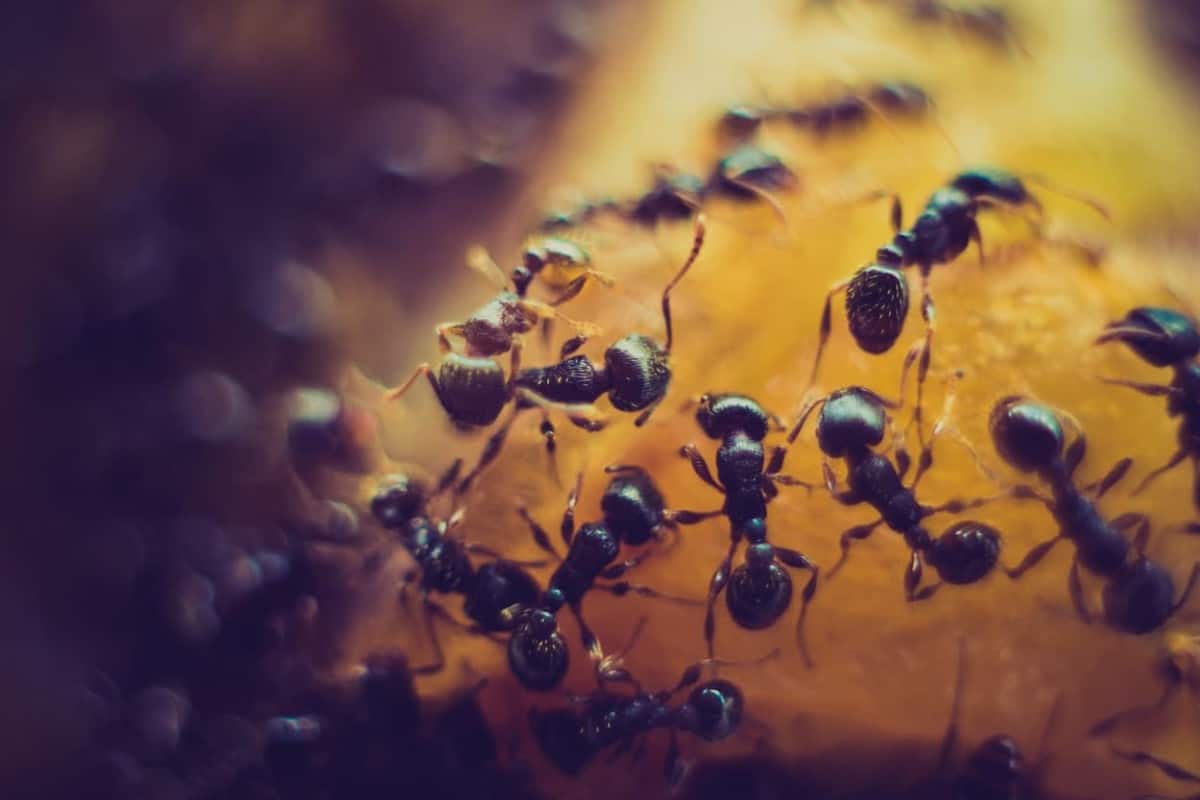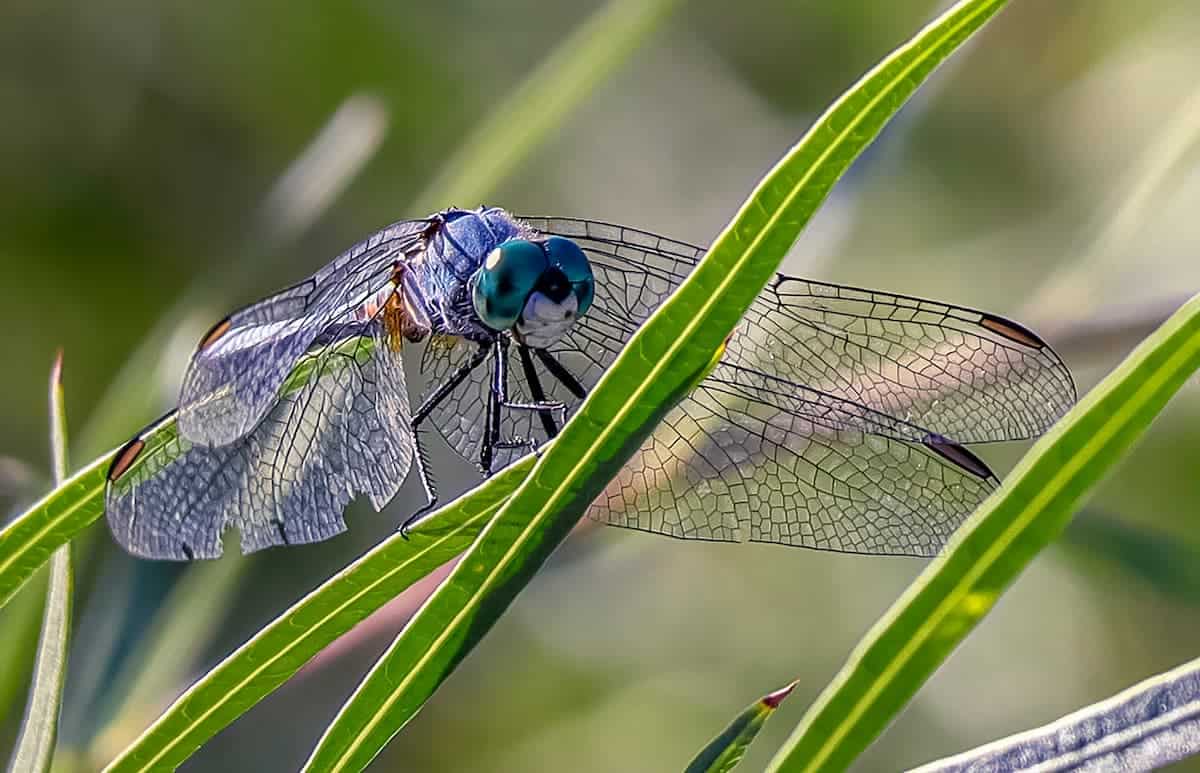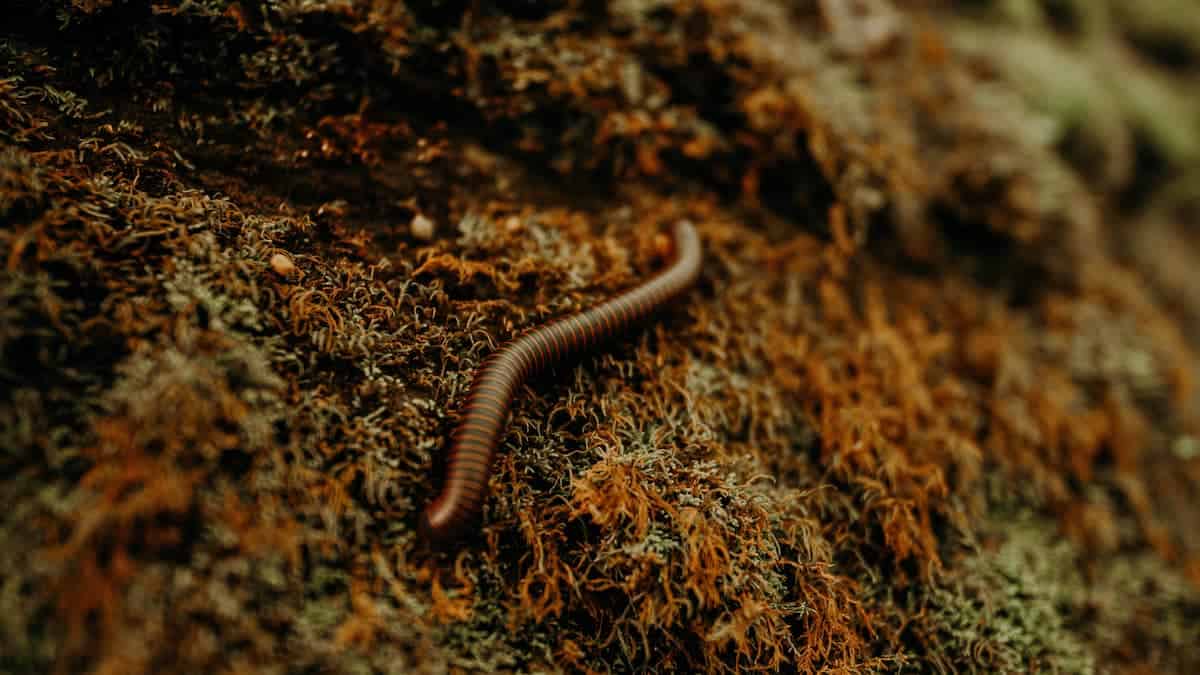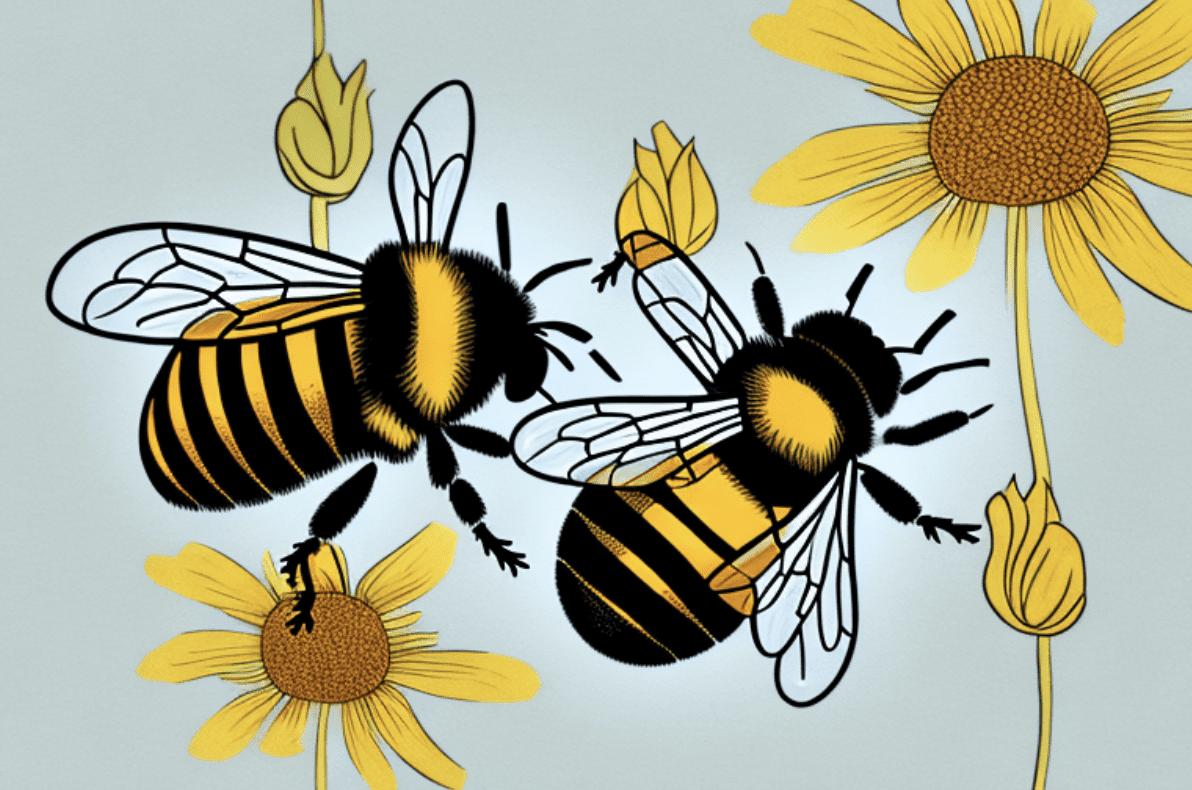Grasshoppers do sleep, but only for very short periods of time, this tends to only be one to two hours per day. This is because they are very busy creatures and spend their time eating and jumping. When sleeping grasshoppers enter a state of torpor and can wake up in mere seconds if they feel endangered
Grasshoppers are intriguing little creatures, and while they are one of the insect kingdom’s most well-known and easily recognized members, they are still ones that we know little about. When picturing the lives of grasshoppers, it can be hard to imagine them sleeping. So, do they sleep? Grasshoppers do sleep, but only for very short periods of one to two hours per day. Let’s find out why!
Do Grasshoppers Sleep?
Grasshoppers are very busy creatures, and between hopping 20 times the length of their bodies and eating 16 times their body weight daily, they have little time to sleep. However, sleep is still necessary for them, as it is for all animals.
Grasshoppers and other insects sleep in a way that is slightly different from us; however, they receive similar cognitive and health benefits. When ‘sleeping,’ grasshoppers enter a torpor equivalent to our sleep state. In this state, they remain very still and are less responsive to external stimuli.
Grasshoppers can wake up from their state of torpor in mere seconds if they are startled by environmental stimuli such as movement, sound, or the sun’s rising or setting. This behavior is an evolutionary response that makes it hard for predators to sneak up and catch them unawares.
Their ability to wake up instantly, combined with the fact that they don’t have eyelids (and so sleep with their eyes open), makes it difficult to distinguish when a grasshopper is asleep from any other time that it’s sitting still.
Why Do Grasshoppers Need To Sleep?
Sleep ‘recharges’ and restores grasshoppers like it does to us. Without sleep, grasshoppers will experience a decline in cognitive and motor functioning, like that which we would experience when sleep deprived.
When sleep deprived, grasshoppers will thus be less alert in their observations and slower in their movements and reaction times. This is dangerous, as it increases their vulnerability to predators like snakes and hawks and other threats such as flooding.
Like humans, if they miss out on sleep time, grasshoppers will ‘sleep in’ (that is, sleep for longer) the next time they get a chance! Sleeping in allows them to catch up on rest and feel fully recharged and alert.
Do Grasshoppers Sleep When The Sun Is Out?
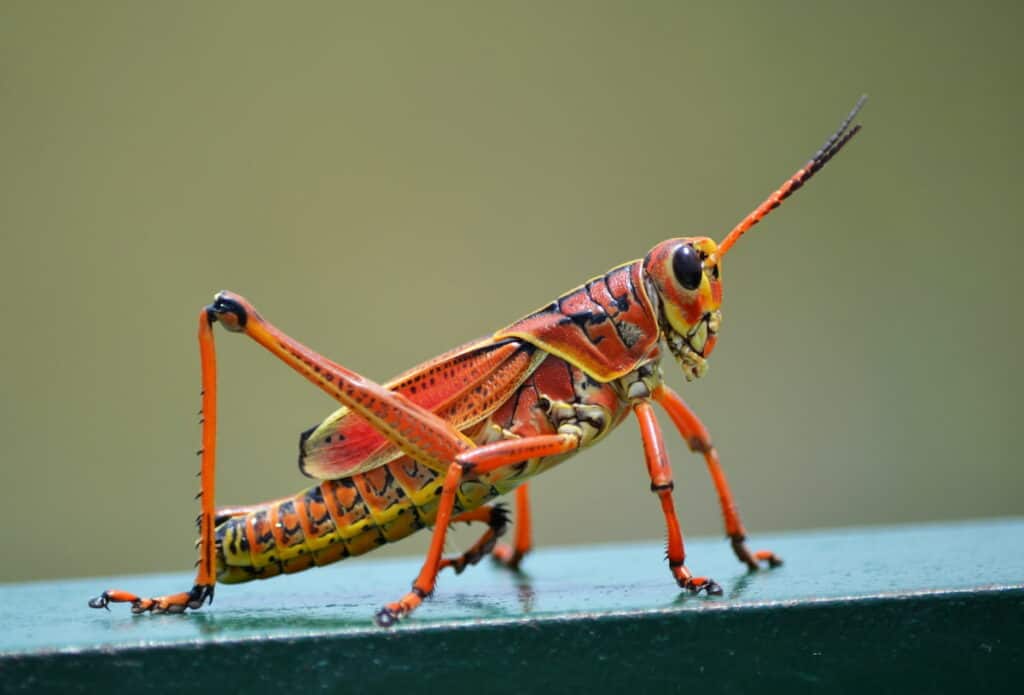
Even though grasshoppers are confirmed to sleep, it’s very rare to spot a grasshopper in the middle of a nap. So, you may be wondering, when do grasshoppers sleep?
These insects spend much of their time eating and looking for food – as they need to, for they eat an impressive 16 times their body weight daily! Some species mostly feed at night and others during the day; however, they all take the opportunity to sleep for a few hours while the sun is out.
Sleeping during the day helps grasshoppers conserve energy during the heat of the day. It has the additional benefit of allowing them to hide from predators such as hawks, snakes, and lizards, most of which are diurnal.
Where Do Grasshoppers Sleep?
So, if grasshoppers sleep during the day, why do you never see them curled up taking a nap on your lawn?
Unlike some insects, grasshoppers do not build nests or burrows and thus do not have an obvious choice of base camp in which to sleep. So, you may wonder, where exactly do grasshoppers take their power naps?
Grasshoppers often sleep on the ground; however, they always look for some cover to protect themselves from predators. When they feel the need for a nap coming on, they thus find a sheltered spot under a stone or in a hole and settle in for a quick forty winks.
Grasshoppers may also sleep in bushes, trees, or other plants, using the leaves and branches to protect themselves from predators and the elements such as the baking sun or pouring rain. Want to learn more about where do grasshoppers sleep check out our article specifically on it here.
Do Grasshoppers Sleep Alone?
You may wonder whether grasshoppers sleep alone or gather in swarms or small groups to do so. I was also intrigued by this, so I did a little research.
Grasshoppers are not typically social animals and usually only gather en masse when they are hatching, mating, or traveling to new feeding pastures. For this reason, grasshoppers generally feed and sleep alone and are considered solitary animals.
Do Grasshoppers Dream?
If grasshoppers sleep every day, it’s reasonable to wonder whether they dream too, and if so, what they might dream about.
Research has revealed, however, that it is unlikely that grasshoppers have dreams, or at least not in the way we conceptualize them. This is because insects do not enter the Rapid Eye Movement (REM) sleep stage, as they must stay constantly alert to be on the lookout for predators and other threats.
REM sleep (experienced by humans and some mammals and birds) is the stage in one’s sleep cycle when one experiences the deepest sleep. It has also been identified as the stage when dreaming occurs.
As grasshoppers do not experience REM, scientists doubt they have dreams – although it is possible that they merely dream in a different way or stage of the sleep cycle than we do.
If this is the case, it’s fun to imagine what a grasshopper would dream of – perhaps a delicious blade of grass or even finding the perfect mate.
Conclusion
Sleep is essential to any animal’s functioning, and grasshoppers are no exception. They require significantly less sleep than we do and, consequently, sleep for only short periods of an hour or two. However, this state of torpor is necessary for their alertness, reaction times, and general functioning.
Grasshoppers often sleep during the day as this protects them from predators and the elements. They typically sleep alone and can be found catching a quick forty winks under a stone, in a hole in the ground, on a branch, or even napping on the wing!
